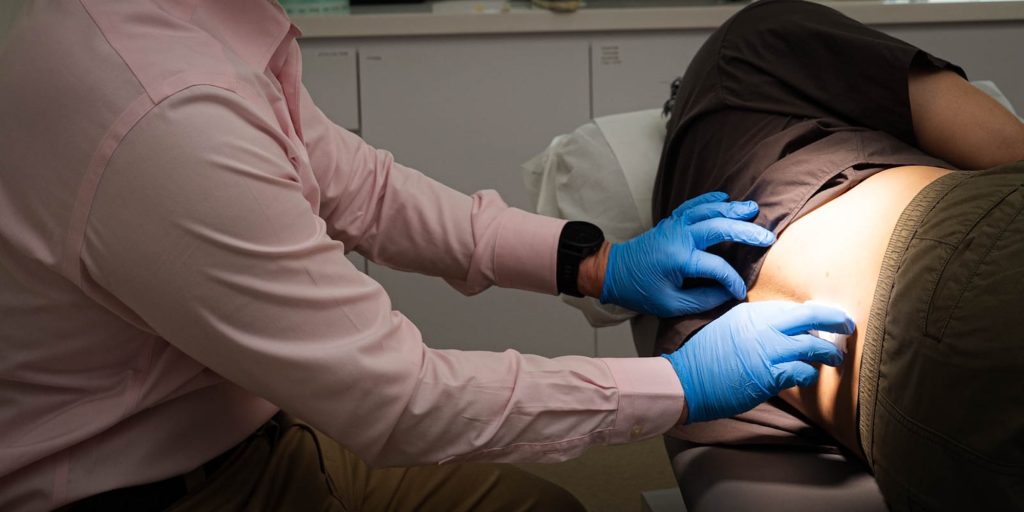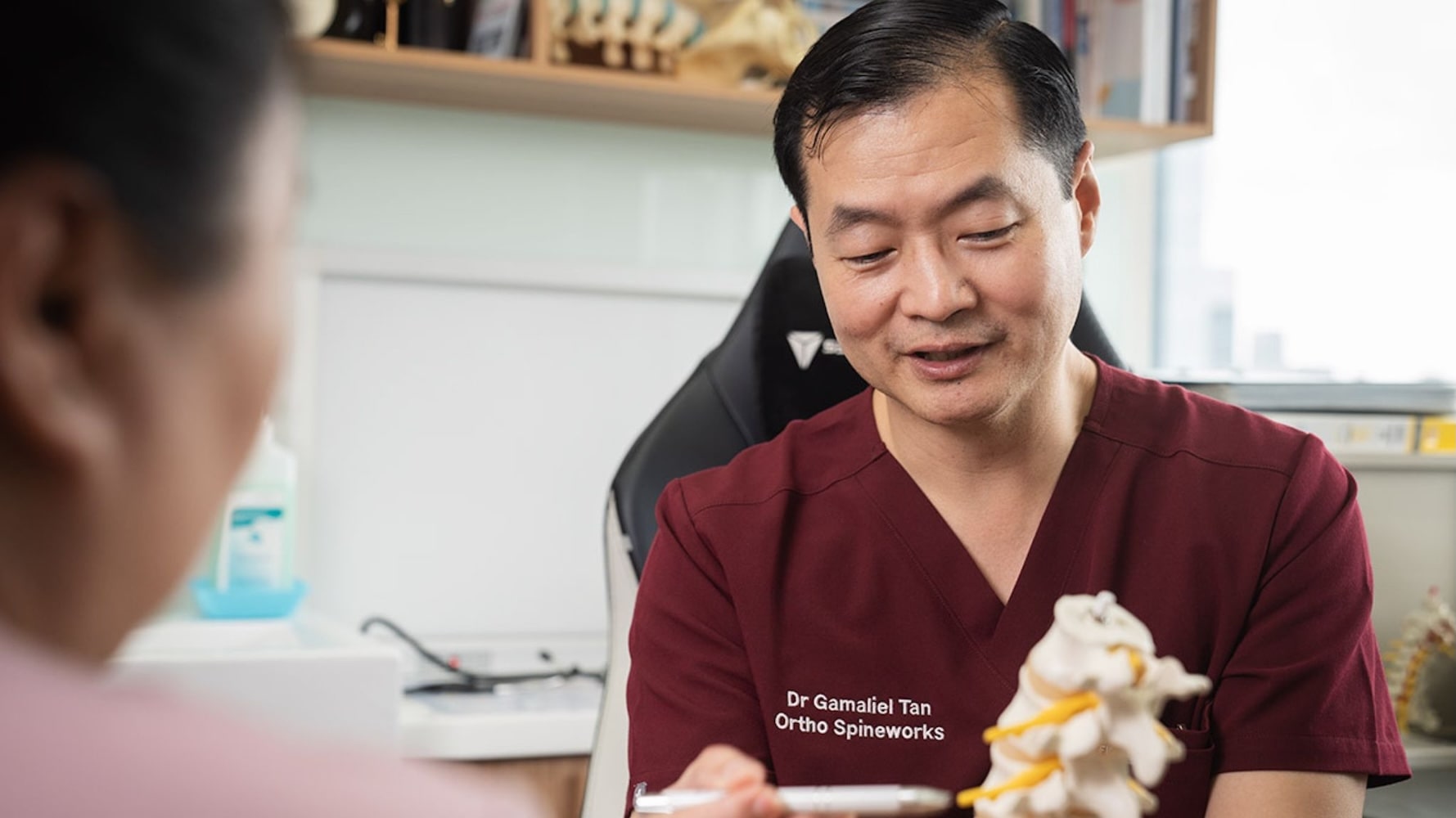Slipped Disc Surgery: What To Consider Before You Say Yes
A diagnosis of a slipped disc can feel like a turning point—especially when daily movement is affected or the pain starts interfering with work, family life and rest. For many in Singapore, slipped disc surgery may be presented as the next step forward. But is it always the best choice?
Before making a life-changing decision, it is worth asking: Do I need surgery for a slipped disc, or are there alternatives to slipped disc surgery that could help me heal?
This guide is designed for individuals in Singapore who have been diagnosed with a herniated disc or are actively weighing treatment options. Whether you’ve just begun your journey or are considering surgery after months of pain, this article will help you understand the full spectrum of slipped disc treatment options.
Empower yourself with knowledge. With the right care team and an informed approach, you can make a decision that supports both your current well-being and long-term spinal health.
What Exactly Is a Slipped Disc
Your spine consists of stacked vertebrae cushioned by discs that act like shock absorbers. A slipped disc—also called a herniated or prolapsed disc—happens when the soft, inner core of a spinal disc pushes through a tear in the outer layer.
This can irritate surrounding nerves, causing symptoms such as:
- Back pain
- Numbness
- Tingling or weakness in the buttocks, legs or feet (a pattern known as sciatica)
Causes range from natural age-related wear and tear to poor posture, improper lifting techniques or repetitive strain. Sometimes, slipped discs occur without a single trigger.
What’s surprising to many patients is that not all herniated discs cause symptoms or need aggressive treatment. Many people have disc bulges without knowing it. That’s why treatment plans should focus on your symptoms and function, not just MRI results.
Understanding the difference between imaging findings and lived symptoms is a key step in determining whether you require slipped disc surgery or if your condition can improve with conservative care.
Is Surgery Always the Answer
Not necessarily. Although surgery is sometimes presented as a faster route to relief, it is important to know that up to 90% of slipped discs improve with conservative care. In Singapore, patients may be referred for surgery early, particularly when imaging looks serious, but scans alone don’t always reflect the pain or impact you’re feeling.
Wondering when to consider slipped disc surgery? Our orthopaedic spine surgeon typically reserves surgery for cases where:
- Symptoms persist after 6–12 weeks of conservative treatment
- There’s a significant neurological decline (e.g., muscle weakness or loss of function)
- Pain severely impairs your daily life despite other efforts
Red Flag Symptoms That Warrant Urgent Surgery
While most cases can be managed without surgery, there are exceptions. Certain symptoms signal a more severe underlying issue—where urgent surgical intervention may prevent permanent damage.
Seek immediate medical attention if you experience:
- Loss of bladder or bowel control
- Progressive weakness in the legs or feet
- Unrelenting pain that isn’t responding to medication or therapy
These signs may indicate that your nerves are being compressed at a level that could lead to irreversible damage. In such scenarios, slipped disc surgery isn’t just a treatment—it’s a medical necessity.
However, if you’re not experiencing these red flags, you likely have time to explore other slipped disc treatment options without rushing into surgery.
Understanding the Costs and Considerations of Surgery

When exploring slipped disc treatments, surgery may seem like a clear next step—especially if you’ve been dealing with long-standing pain. However, it is worth taking a step back to understand what surgery involves, from both a recovery and financial perspective.
One of the most common questions patients ask is: How long to recover from slipped disc surgery?
Recovery timelines vary depending on individual health, age and the type of procedure performed. In general, most patients can expect a healing period of 6 to 12 weeks, with some needing longer-term physiotherapy to restore strength, mobility and function.
Like any major procedure, slipped disc surgery risks should be weighed carefully. While surgery can be effective in specific cases, patients should be aware of potential outcomes such as:
- Nerve sensitivity or scar tissue near the surgical site
- Temporary discomfort during the healing process
- The possibility of residual or recurring symptoms, which may need further care
In Singapore, costs also vary depending on the type of hospital and insurance coverage. Public hospitals provide subsidised care, often supported by MediSave. In private healthcare settings, the estimated cost of spine procedures can range from SGD 15,000 to SGD 40,000, depending on complexity.
Financial factors aside, patients should also prepare for the time and support needed post-surgery. From planning leave from work to arranging follow-up visits and rehabilitation, surgery is a journey that extends well beyond the operating room.
Before moving forward with surgery, our orthopaedic spine surgeon recommends a thorough trial of conservative care. It allows patients to better evaluate how their body responds—and whether surgery is necessary.
Non-surgical Treatment for a Slipped Disc
Many patients achieve full or significant recovery with non-surgical treatment for a slipped disc, especially when the condition is identified early and managed properly.
One of the most effective approaches is physiotherapy for a slipped disc. A licensed physiotherapist can assess your posture, mobility and strength. Then, guide you through exercises to support spinal alignment, strengthen the core and relieve pressure on the affected nerve.
Other common conservative treatments include:
- Anti-inflammatory medications (NSAIDs)
- Epidural steroid injections to reduce local inflammation
- Spinal decompression therapy, such as traction or manual mobilisation
- Complementary therapies like acupuncture or TCM, which are often integrated into
- Singapore’s care ecosystem
Empowered Decisions Start with the Right Questions: How to Make the Right Choice for You
The most empowering step you can take is to ask the right questions:
- Have I tried all non-surgical treatment options for slipped discs available to me?
- Are my symptoms severe enough to justify surgery, or is this decision based on imaging alone?
- Would a second opinion help me make a more confident choice?
Consulting a specialist in minimally invasive spine surgery can help clarify your options. These techniques, when appropriate, often offer faster recovery times and reduced tissue trauma compared to traditional surgery. But they’re still surgeries—and shouldn’t replace conservative care without a valid clinical reason.
What Patients Often Regret (and What They Don’t)
One of the most common regrets patients share is not taking time to fully understand their options. Many rush into surgery expecting fast relief, only to discover that recovery is slower—or more complicated—than expected.
Others regret not seeking a second opinion or not pursuing slipped disc recovery without surgery first.
But patients rarely regret taking the time to make an informed, deliberate decision. They feel empowered by understanding their condition, asking hard questions and actively participating in their care. In many cases, patients who invest in structured physiotherapy for slipped disc and lifestyle changes find real, lasting relief without surgery.
At Ortho Spineworks, our orthopaedic spine surgeon, Dr Gamaliel Tan, provides careful, individualised assessments to help you understand what’s necessary—and what is not. With experience in both surgical and non-surgical care, he partners with patients to make decisions that support long-term function and quality of life.
Your Next Step, Informed and Confident at Orthospine Works
Before moving forward with surgery, take the time to explore the full scope of treatment options available to you. Your journey to recovery should reflect your unique condition, your goals and how you want to live moving forward.
In Singapore, slipped disc treatment includes both non-surgical and surgical options. Many patients find lasting relief through structured physiotherapy and lifestyle changes without the need for an operation. If surgery is being considered, let it be after a thorough review of your condition and a clear understanding of slipped disc surgery risks, recovery time and outcomes.
We believe your recovery should start with knowledge, not pressure. Whether you’re just beginning to explore treatment or seeking clarity before surgery, we’re here to guide your recovery.
Choose a path that supports your health, your goals and your life.
